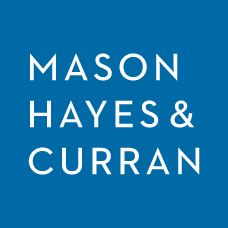Preclinical and Clinical Trial Requirements
Mason Hayes & Curran / Ireland
A brief overview of the situation regarding preclinical and clinical trial requirements in Ireland. Prepared in association with Mason Hayes & Curran, a leading law firm in Ireland, this is an extract from The Pharma Legal Handbook: Ireland, available to purchase here for USD 99.
1. Are clinical trials required to be conducted locally as a condition (stated or implicit) for marketing approval?
Clinical trials do not have to be conducted locally in order to gain marketing approval in Ireland. All clinical trials included in applications for an MA for human use in the European Economic Area (EEA) must be conducted in accordance with Annex 1 of EU Directive 2001/83/EC which requires compliance with Directive 2001/20/EC for trials conducted in the EEA and for trials conducted outside the EEA, there must be compliance with ethical principles equivalent to those in the EEA.
In the EU, authorisation of clinical trials occurs at MS level, but the EMA plays a role in ensuring that good clinical practice (GCP) is applied throughout the EEA and compliance with the Declaration of Helsinki (1996). It also manages a database of trials carried out in the EU. In Ireland, clinical trials are governed by the European Communities (Clinical Trials on Medicinal Products for Human Use) Regulations, 2004 (Statutory Instrument No. 190/2004). This legislation transposed the provisions of Council Directive 2001/20/EC. There is however, a new EU Clinical Trials Regulation (EU) No 536/2014 which is to be implemented in during 2020.
Once this new Regulation is implemented, Directive 2001/20/EC will be repealed. One of main features of the new Regulation is to implement identical rules for conducting clinical trials throughout the EU.
This will mean harmonisation and standardising of trials in the EU. The new Regulation also introduces a single online EU Portal and Database for clinical trials.
2. How are clinical trials funded?
Clinical trials can be sponsored or funded by a range of parties including, pharmaceutical companies, academic or voluntary groups, clinical research centres and health care providers.
3. What are the requirements for preclinical and clinical trial protocols? Who must approve the protocols?
The HPRA issues Clinical Trial Authorisations (CTAs) to sponsors of clinical trials or persons authorised to act on their behalf prior to commencement of the trial. The sponsor or their representative must be established in the EEA and are obliged to provide the HPRA with an investigational medicinal product dossier with both clinical and non-clinical data for the product, with evidence of the Ethics Committee’s favourable opinion.
Before an application can be submitted to the HPRA, sponsor must obtain a EudraCT (EU Clinical Trials Database) number by logging onto the EudraCT website. This number and email confirmation must be provided with the application otherwise they will not be validated. Further to this, the sponsor must register with EudraVigilance, the EEA’s system for monitoring drug safety.
Lastly, there must be insurance and indemnity cover for the conduct of the trial.
4. What are the requirements for consent by participants in clinical trials?
Informed consent must be obtained by sponsors from each trial participant. Under Part 3 Schedule 1 of Statutory Instrument No. 190/2004 there are several conditions applying to obtaining ‘informed consent’ and these are:
- The subject has had an interview with the investigator, or another member of the investigating team, in which he or she has been given the opportunity to understand the nature, objectives, risks and inconveniences of the trial and the conditions under which it is to be conducted.
- The subject has been informed of his or her right to withdraw from the trial at any time.
- The subject has given his or her informed consent to taking part in the trial.
- The subject may, without being subject to any resulting detriment, withdraw from the clinical trial at any time by revoking his or her informed consent.
- The subject has been provided with a contact point where he or she may obtain further information about the trial.
Documentary evidence in relation to the above conditions being complied with must be submitted to the Ethics Committee.
The relevant provisions of the General Data Protection Regulation 2016/679 and Data Protection Act 2018 (Section 36(2)) (Health Research) Regulations 2018 must also be complied with in respect to the processing of the data generated from a trial.
5. May participants in clinical trials be compensated?
Many participants in clinical trials in Ireland are provided with some form of compensation. Reimbursement must be reasonable but not act as an incentive. Reimbursement could be in the form of travel expenses, money or food/food vouchers as a recognition of the time sacrifice and the contribution to science made by trial participants.
6. How are participants in clinical trials protected and indemnified against any harm that arises as a result of participation in the trial?
The Irish State Claims Agency (SCA) and the IPHA have agreed a single HSE clinical trial indemnity form (CTIF) for industry – led clinical trials in Ireland. This ensures efficiency in conducting clinical trials and prevents there being numerous red tape barriers to getting approval for a trial. The CTIF is applicable to any state hospital in Ireland, and its use provides the assurance that companies sponsoring a clinical trial will adhere to certain guidelines if injury is caused to a patient as a result of their participation in the trial.























































